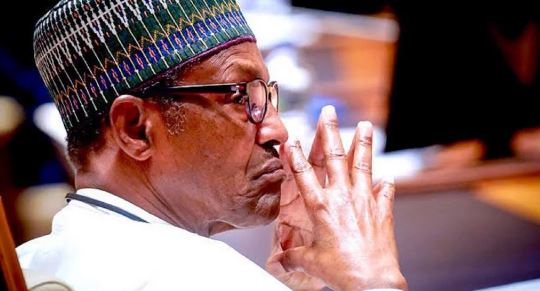Time to arrest ritual killings
The recent rise in ritual killings for money among Nigerians, especially the youth has become worrisome. The latest is the gruesome killing of a 20-year-old girl by her boyfriend and three other teenagers. Under the influence of get-rich-quick syndrome, the young boys were on January 29, 2022, caught burning the head of their victim, identified […]

President Muhammadu Buhari
The recent rise in ritual killings for money among Nigerians, especially the youth has become worrisome. The latest is the gruesome killing of a 20-year-old girl by her boyfriend and three other teenagers. Under the influence of get-rich-quick syndrome, the young boys were on January 29, 2022, caught burning the head of their victim, identified as Rofiat, in Oke Aregba area of Abeokuta, the Ogun State capital.
Confirming the incident, the Ogun State Police Public Relations Officer (PPRO), Abimbola Oyeyemi, in a statement said three young boys whose ages range between 17and 20 years were arrested by men of the state police command for killing a girlfriend of their friend for money-making ritual. On interrogation, the arrested teenage suspects Wariz Oladehinde, Abdulgafar Lukman and Mustakeem Balogun, all confessed to the crime.
The suspects also said Rofiat was lured by her boyfriend, Soliu Majekodunmi, to where she was murdered by four of them, after which they cut off her head, packed the remains into a sack, and dumped it in an old building. One of the suspects, Balogun, claimed to have learnt money ritual from the information posted on a Facebook group.
Also, on New Year’s Day, the corpse of a missing 300-level student of the University of Jos, Jennifer Anthony, was found mutilated at a hotel along Zaria Road in Jos with some parts of her body, including the eyes, missing. The alleged ritual killer, 20-year-old Moses Oko, who was nabbed a few days later in Makurdi, Benue State, turned out to be her boyfriend. On January 4, the Bayelsa State Police Command apprehended three teenage suspects for attempted ritual killing in Sagbama LGA of the state. The PPRO in the state, Asinim Butswat, said the suspects accosted one 13-year-old Comfort and hypnotized her to follow them to Emomotimi’s apartment. They allegedly cut her finger and sprinkled the blood on a mirror for ritual purposes. The suspects, after their arrest, confessed to the crime.
On January 11 this year, a mother and her son were arrested along Itamaga-Ikorodu Road, Lagos, for allegedly killing the younger sibling for money ritual. The son, Afeez Olalere, reportedly told the police that his mother encouraged him to commit the heinous crime. “My mother took me to a herbalist who told me if I want to be successful in yahoo business, I needed to sacrifice one life and that person must be a sibling to me,” Afeez said. The victim, his sibling, died within 20 minutes after drinking the poison bought by their mother. Afeez confessed to cutting the body parts needed for the ritual.
The list of such crimes goes on and on. We condemn in very strong terms this worrisome trend and urge that it be treated with the seriousness it deserves. The idea that in the 21st century, people are killing fellow citizens to get rich in itself casts a terrible shadow on the nation as backward and primitive. It is indeed very unfortunate that the country has degenerated to this level and more scary is the involvement of youths in this heinous crime.
This development no doubt brings to question the place of societal values; what happened to the fabric of the Nigerian society? How did it get so bad? Research has shown that irresponsible parenting, access to hard drugs and substances, influence of social media contents, corruption, the glorification of riches, and weak enforcement of criminal laws altogether contribute to the spread of quick or easy money syndrome among Nigerian youths who believe that money ritual is a shortcut to wealth.
There must, therefore, be a redirection of the society. A situation where no questions are asked about individuals whose sources of wealth are suspicious only suggests that prosperity could be achieved by any means; not necessarily hard work. There is also a need to tone down the public show of affluence by Nigerians. The affluent must also learn to be moderate, and be seen to be moderate.
Furthermore, we call on the National Orientation Agency (NOA) to design a national strategic programme that would reorient Nigerian youths to find value in hard work. Traditional and religious leaders should explore their respective roles to preach against crass materialism.
Parents must also wake up to their responsibilities. They should monitor and regulate not only what their children watch and listen to but also check the kind of friends they keep. The moral training of children is not a duty exclusive to teachers. To save the country from this poor narrative, the Nigerian society must examine and redefine its values in the light of its glorious past where morality, not money, determined the respect an individual earned. To deter others, the law should be seen to take its course over every perpetrator of ritual killing. Enough of horrible killings for money.
